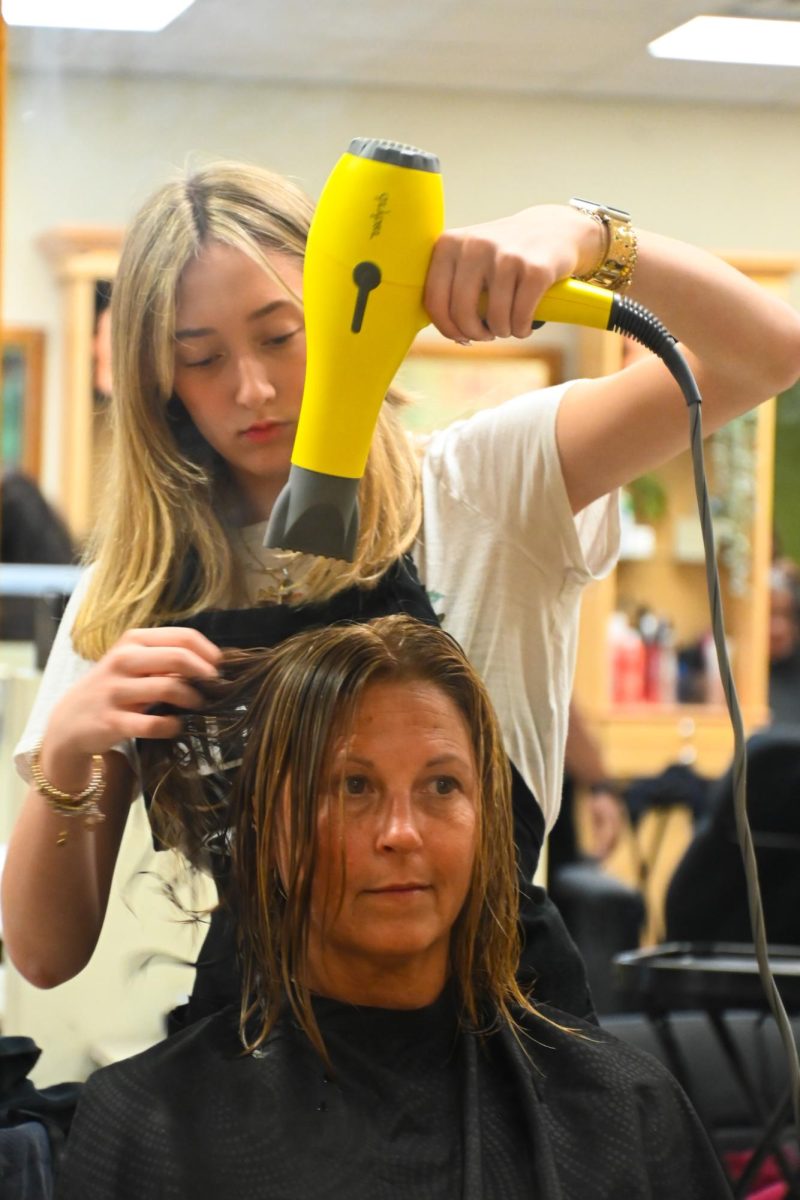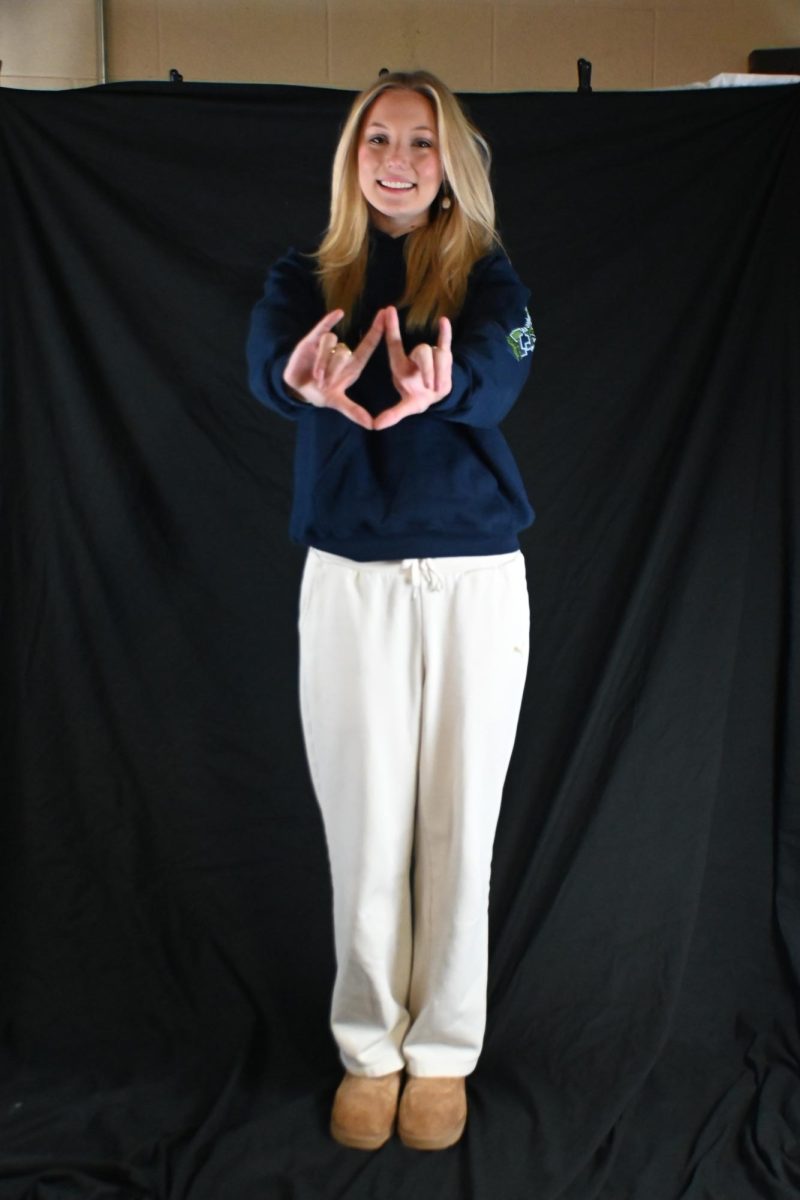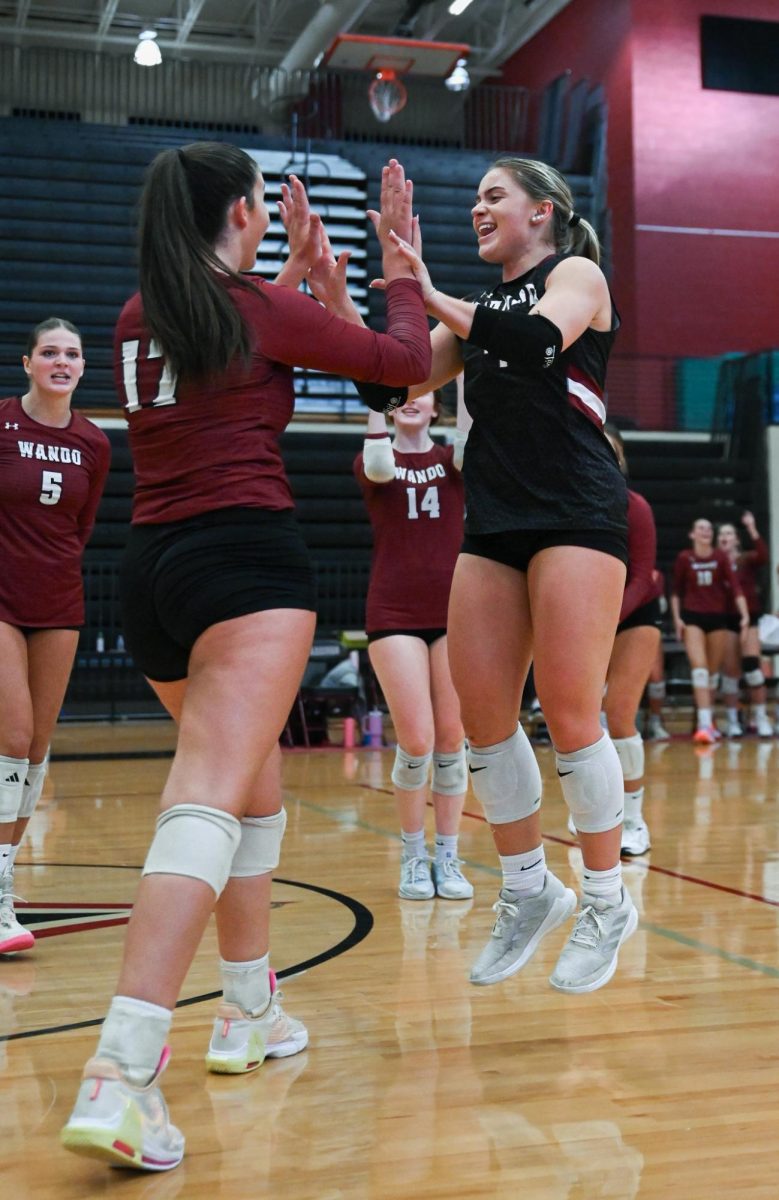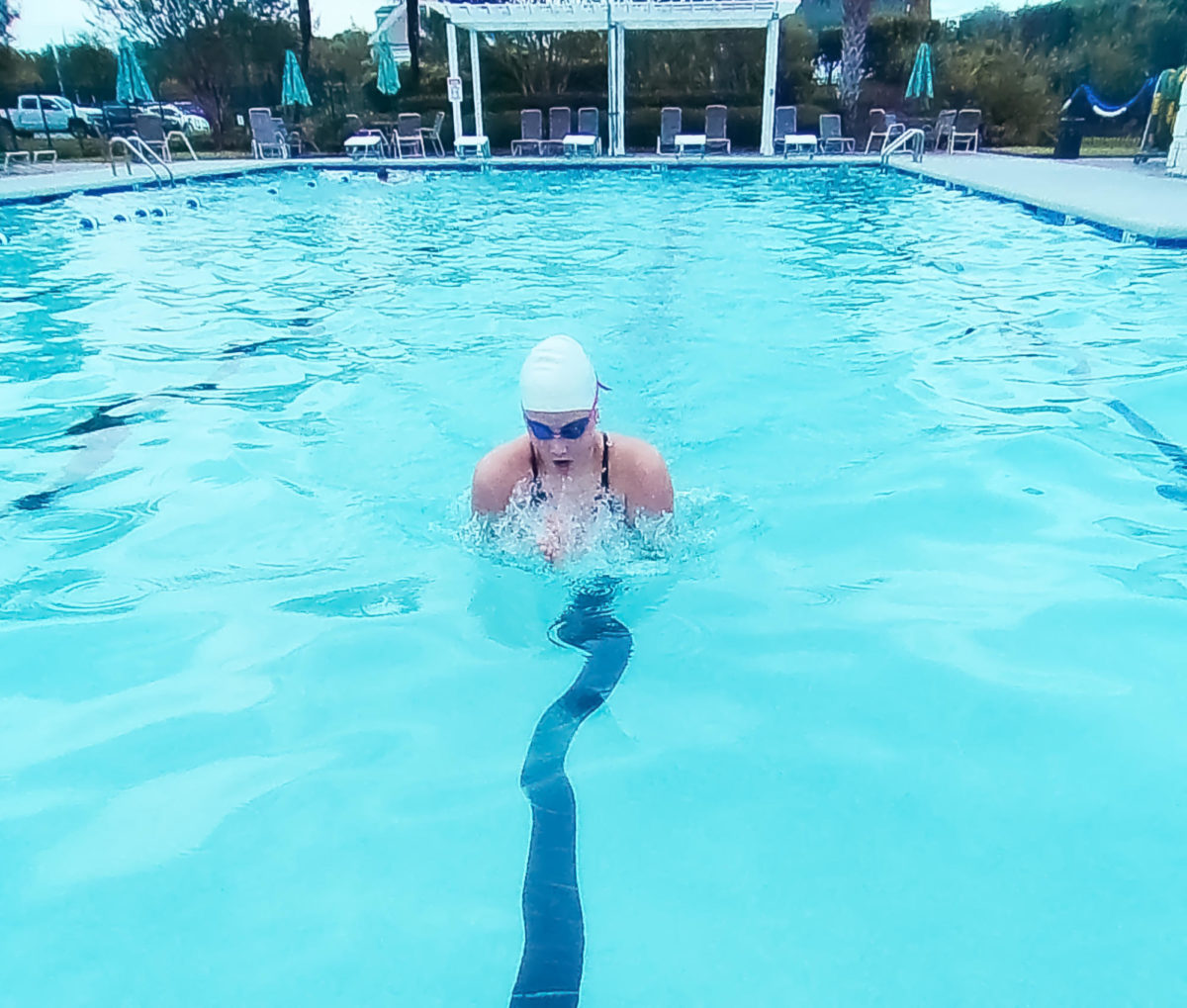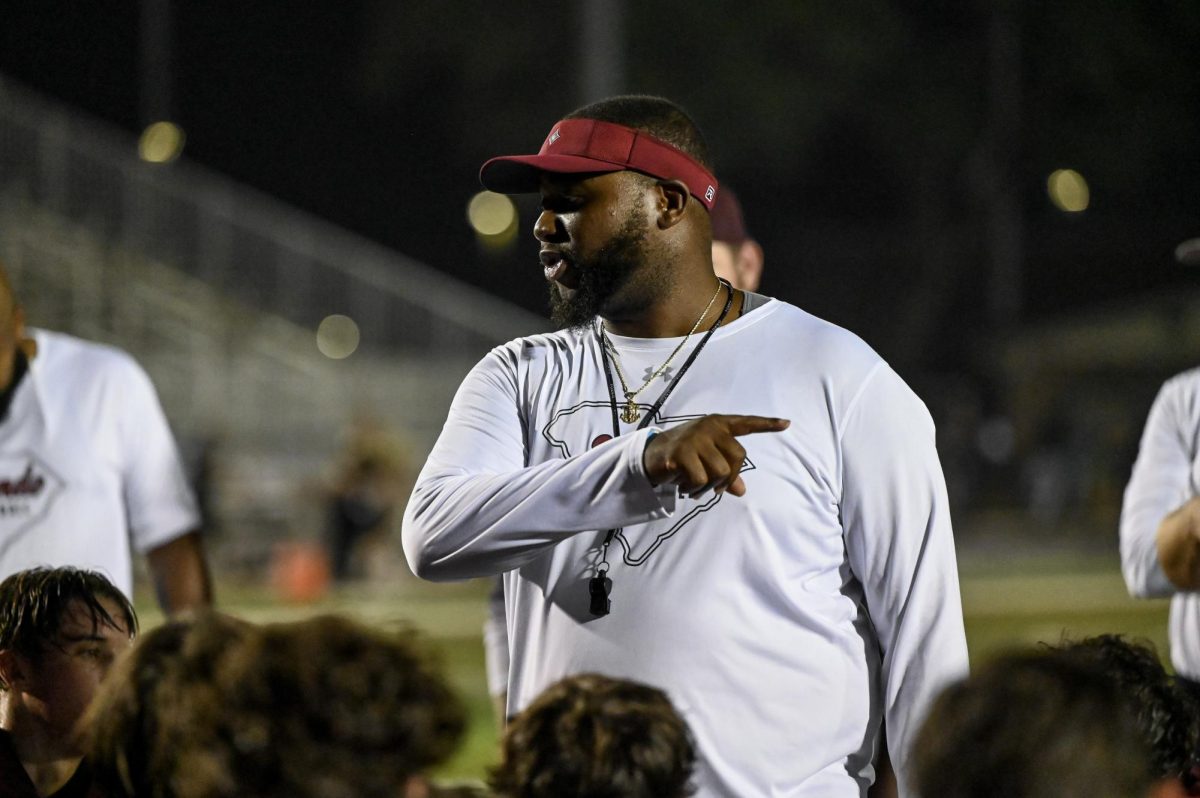From diving into choppy water, to splashing competitors, and goggles tight enough to cut circulation, to the beginning of headaches, blurry vision, and foggy thoughts.
For sophomore Katie Deeter, her time in the water was cut short not from an injury, but from a rare intruder in her brain. Katie began swimming when she was 8 and she continued the sport throughout the years, but an unfortunate condition was dis- covered six years later. Starting last year, symptoms such as a pounding headache and dizzy spells took a hold on Katie. During the beginning of this year, Katie was diagnosed with a pituitary tumor in her brain.
“I just had constant headaches. I couldn’t focus. I just wasn’t feeling right,” Katie said.
While her swimming season had ended, Katie endured months of pain, with the last few being unmatched. Katie’s mother, Amy Deeter, an occupational therapist, decided it was time to go to a doctor.
The first doctor Katie visited was located at the Medical University of South Carolina but their service was extremely unhelpful.
“They wanted to watch her to just monitor this tumor over the next three months. And I kept saying she’s losing her balance…there were nights where she couldn’t even get up- stairs because she was so tired,” Amy said.
After an unsuccessful attempt at finding help, Amy sent out a parent referral to Dr. Nelson Oyesiku who specializes in pituitary tumors at the University of North Carolina. Katie, however, faced an age hurdle for this particular doctor.
“Dr. Oyesiku only sees patients 18 years and older, and my heart sank…the secretary said he was so touched by your referral and by your letter that he’s agreed to see Katie,” Amy said.
Katie and her mother spent hours traveling back and forth between Charleston and Chapel Hill to receive labs and medication while she was attending school.
“I went there for two days, came back. But sometimes I’d go for like a week or just a day. It really varied on what I was there for,” Katie said.
As this process became extremely difficult and time consuming, Katie’s schedule became too full to participate in the spring season of club swim.
“I was disappointed not swimming. I really wanted to keep doing it. I think I coped by trying to work out instead,” Katie said.
At the University of North Carolina, the doctor suggested Katie take Cabergoline, which would hopefully result in a shrunken tumor and lessen the painful symptoms. She continues to use this medication as its benefits have been proven to work on her, but in the long run, she may need surgery if the tumor does not shrink enough.
Katie’s swim coach, Nicolette Gibbons, praised her perseverance through her health.
“I’ve always loved Katie. I think she is a great girl and super respectful, but this made me have even more respect for her that she carries herself so well even with all this other stuff going on,” Gibbons said.
Katie practices with her team every Monday to Friday, but she does not compete in meets. During the meets, she participates as the swim team’s manager, so while she helps the team, they continue to support her.
“They have been able to support each other and help each other get strong and really be there for each other while they’re healing,”
Amy said.
Gibbons did not want Katie overexerting herself or putting on too much pressure before making a full recovery.
“They didn’t really want us to compete if we weren’t feeling up to it. And now we go to swim meets when we want or we can just help manage, but we do swim practice to help gain our strength back,” Katie said.
The Deeter family is hopeful of Katie’s recovery. Swimming has become a large part of Katie’s recovery due to it giving her more strength and a foundation of support. She is participating with the swim team this fall season and aims to rejoin South Carolina Swim Club.
“There’s no doubt in my mind that her love of the sport and her love of the team has helped her through this,” Amy said.












